第66章
A still heavier trial awaited Chief Justice Oliver, as he passed onward from the Province House. He was recognized by the people in the street.
They had long known him as the descendant of an ancient and honorable family. They had seen him sitting in his scarlet robes upon the judgment-seat. All his life long, either for the sake of his ancestors or on account of his own dignified station and unspotted character, he had been held in high respect. The old gentry of the province were looked upon almost as noblemen while Massachusetts was under royal government.
But now all hereditary reverence for birth and rank was gone. The inhabitants shouted in derision when they saw the venerable form of the old chief justice. They laid the wrongs of the country and their own sufferings during the siege--their hunger, cold, and sickness--partly to his charge and to that of his brother Andrew and his kinsman Hutchinson.
It was by their advice that the king had acted in all the colonial troubles. But the day of recompense was come.
"See the old tory!" cried the people, with bitter laughter. "He is taking his last look at us. Let him show his white wig among us an hour hence, and we'll give him a coat of tar and feathers!"The chief justice, however, knew that he need fear no violence so long as the British troops were in possession of the town. But, alas! it was a bitter thought that he should leave no loving memory behind him. His forefathers, long after their spirits left the earth, had been honored in the affectionate remembrance of the people. But he, who would henceforth be dead to his native land, would have no epitaph save scornful and vindictive words. The old man wept.
"They curse me, they invoke all kinds of evil on my head!" thought he, in the midst of his tears. "But, if they could read my heart, they would know that I love New England well. Heaven bless her, and bring her again under the rule of our gracious king! A blessing, too, on these poor, misguided people!"The chief justice flung out his hands with a gesture, as if he were bestowing a parting benediction on his countrymen. He had now reached the southern portion of the town, and was far within the range of cannon-shot from the American batteries. Close beside him was the bread stump of a tree, which appeared to have been recently cut down. Being weary and heavy at heart, he was about to sit down upon the stump.
Suddenly it flashed upon his recollection that this was the stump of Liberty Tree! The British soldiers had cut it down, vainly boasting that they could as easily overthrow the liberties of America. Under its shadowy branches, ten years before, the brother of Chief Justice Oliver had been compelled to acknowledge the supremacy of the people by taking the oath which they prescribed. This tree was connected with all the events that had severed America from England.
"Accursed tree!" cried the chief justice, gnashing his teeth; for anger overcame his sorrow. "Would that thou hadst been left standing till Hancock, Adams, and every other traitor, were hanged upon thy branches!
Then fitly mightest thou have been hewn down and cast into the flames."He turned back, hurried to Long Wharf without looking behind him, embarked with the British troops for Halifax, and never saw his country more. Throughout the remainder of his days Chief Justice Oliver was agitated with those same conflicting emotions that had tortured him while taking his farewell walk through the streets of Boston. Deep love and fierce resentment burned in one flame within his breast, Anathemas struggled with benedictions. He felt as if one breath of his native air would renew his life, yet would have died rather than breathe the same air with rebels. And such likewise were the feelings of the other exiles, a thousand in number, who departed with the British army. Were they not the most unfortunate of men?
"The misfortunes of those exiled tories," observed Laurence, "must have made them think of the poor exiles of Acadia.""They had a sad time of it, I suppose," said Charley. "But I choose to rejoice with the patriots, rather than be sorrowful with the tories.
Grandfather, what did General Washington do now?""As the rear of the British army embarked from the wharf," replied Grandfather, "General Washington's troops marched over the Neck, through the fortification gates, and entered Boston in triumph. And now, for the first time since the Pilgrims landed, Massachusetts was free from the dominion of England. May she never again be subjected to foreign rule,--never again feel the rod of oppression!""Dear Grandfather," asked little Alice, "did General Washington bring our chair back to Boston?""I know not how long the chair remained at Cambridge," said Grandfather.
"Had it stayed there till this time, it could not have found a better or more appropriate shelter, The mansion which General Washington occupied is still standing, and his apartments have since been tenanted by several eminent men. Governor Everett, while a professor in the University, resided there. So at an after period did Mr. Sparks, whose invaluable labors have connected his name with the immortality of Washington. And at this very time a venerable friend and contemporary of your Grandfather, after long pilgrimages beyond the sea, has set up his staff of rest at Washington's headquarters.''
"You mean Professor Longfellow, Grandfather," said Laurence. "Oh, how Ishould love to see the author of those beautiful Voices of the Night!""We will visit him next summer," answered Grandfather, "and take Clara and little Alice with us,--and Charley, too, if he will be quiet."